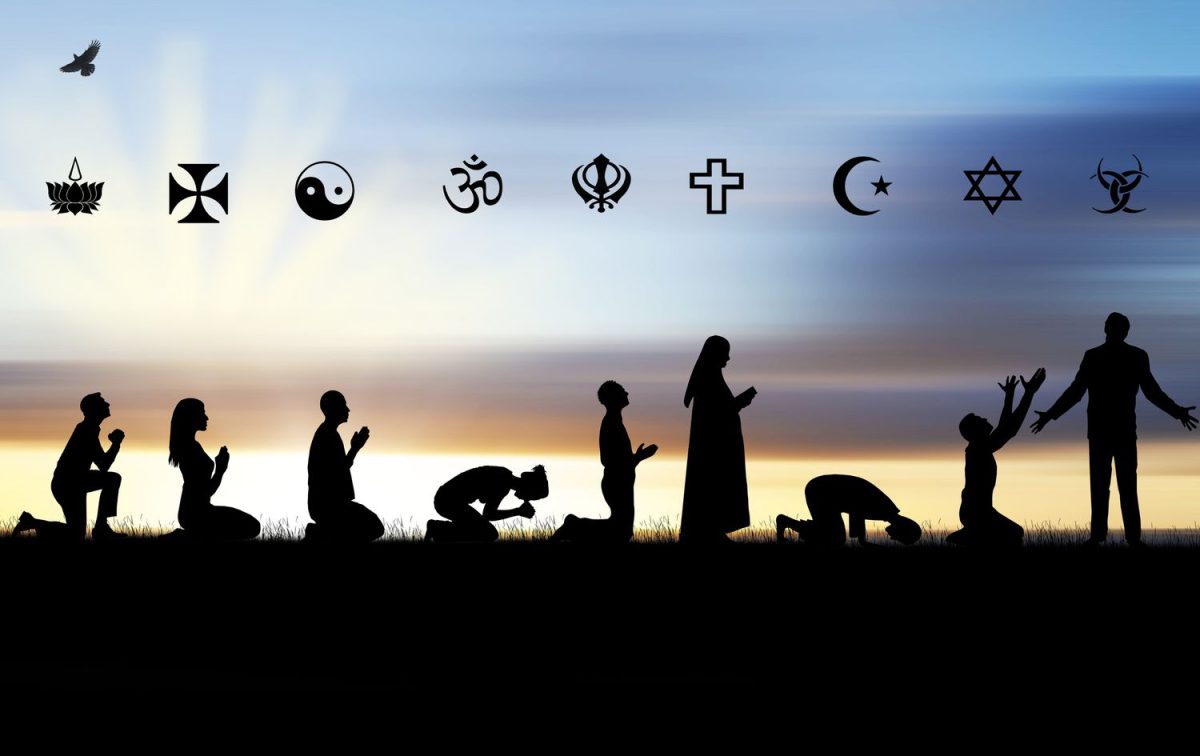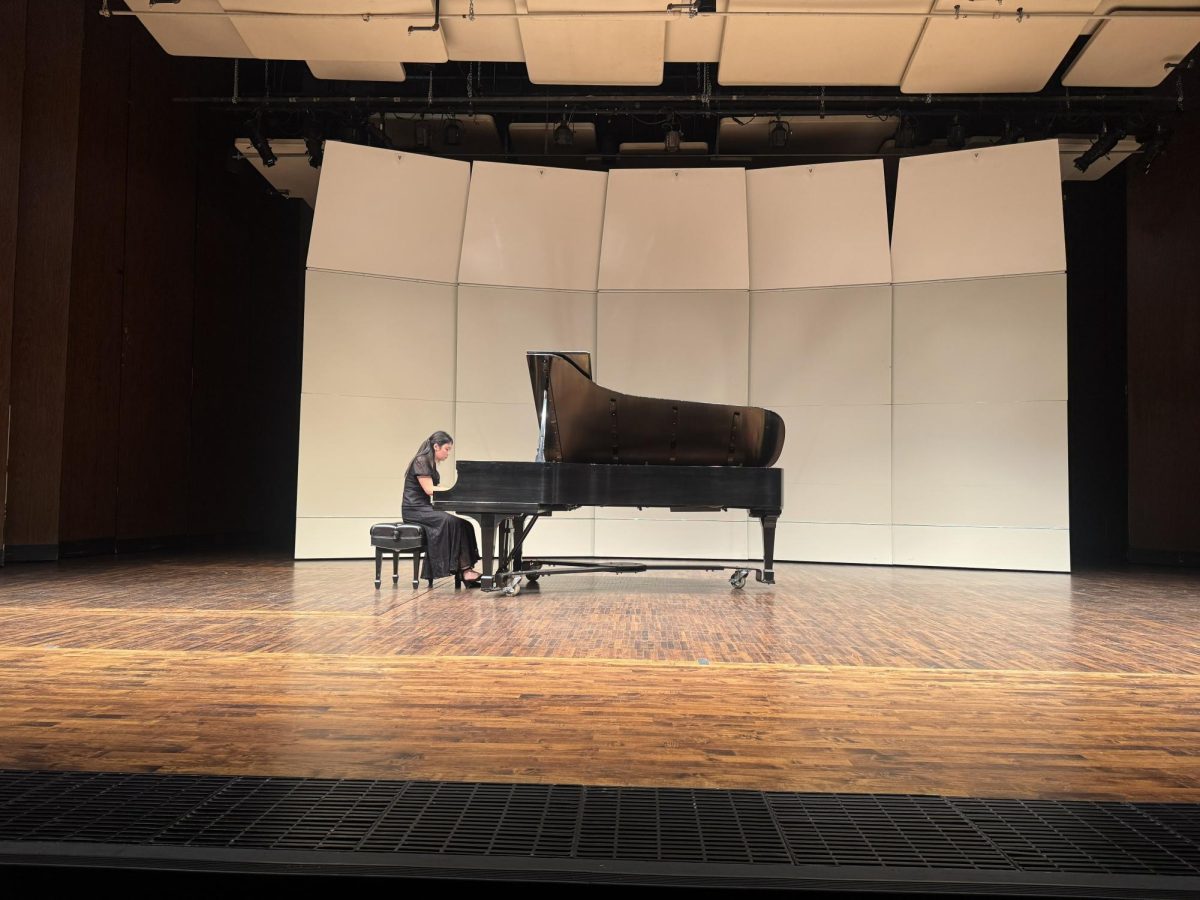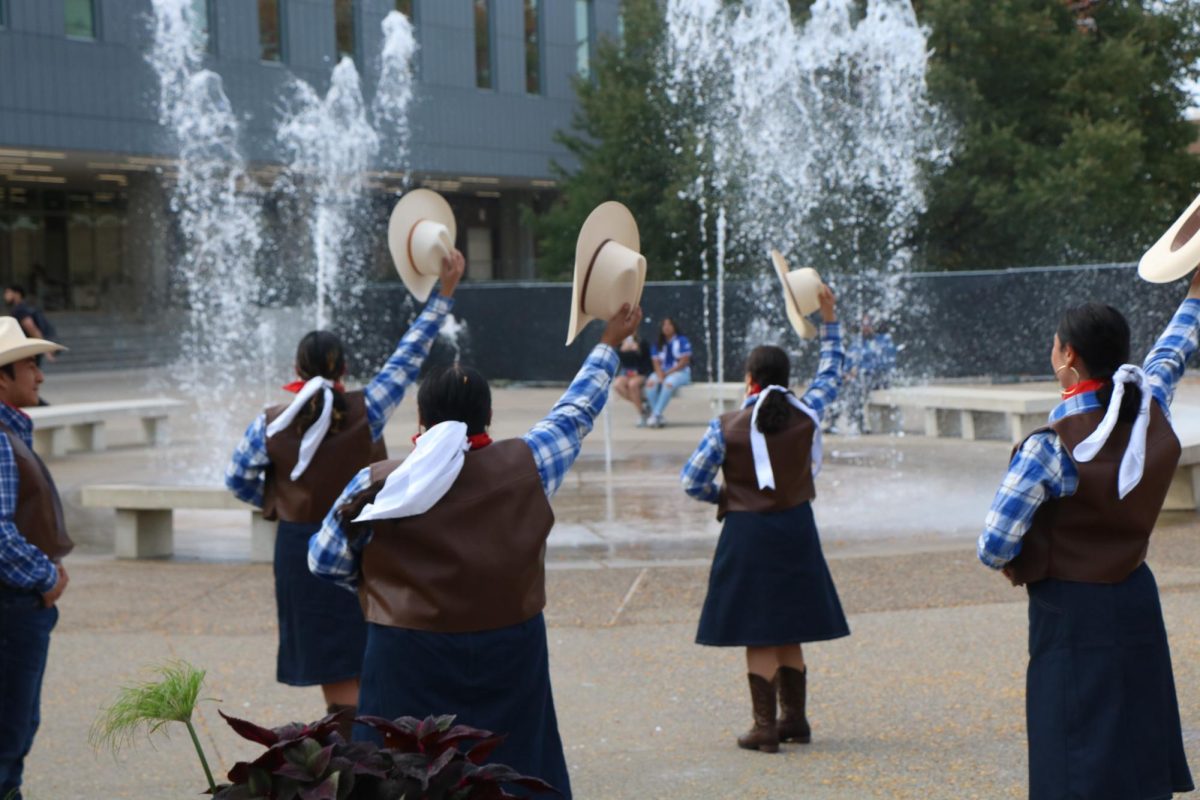The afterlife, community building and the interpretation of the divine were among the topics explored by the World Religions Showcase panel of five different religious representatives on March 13.
The Religious Studies program hosted the annual Q&A event at the Oakland Center. The compact atmosphere of Room 128 was filled by attendees and the immensity of the questions left in the air after almost two hours of discussion.
“Every semester, we offer the world religious showcase because there’s demand for it,” Henri Gooren, Director of Religious Studies, said. “It’s a way to study religion not from a devotional perspective, but more from an academic perspective — looking at their histories, scriptures and impact on society.”
Hinduism, Buddhism, Judaism, Christianity and Islam were the five religions explored at the event. Each guest speaker and representative introduced the religion and its main points in five minutes. Afterward, attendees could ask questions for the panelists.
“It is good for our students to understand the diversity not only among religions but also our community,” Michael Pytlik, Director of Judaic Studies, said. “We have so many different religious faiths in the Detroit area, so it’s important to know.”
The first question asked by the audience regarded the afterlife, how it looked and how it is affected by the choices we make while alive. All questions were answered by each of the five panel members.
Setting the trend for the event, WonRim Rosh Sillars, a representative of the Buddhist religion, answered the first question with another question.
“Do I want to spend my whole life worrying about preparing for something I know nothing about?” Sillars said. “Or do I want to be the best person that I can be right now for this?”
After the differences between resurrection, rebirth and reincarnation were clarified, the second question delved into how to connect with the divine and how to interpret it.
“The gurus and the scriptures can find a direction, but it is up to the person to go forward in that spiritual path,” Geetha Nagaraj, representative of the Hindu religion, said. “One has to practice and reason, accept and move forward to realize the divine.”
As panel members responded to the questions, they agreed for the most part even if they concluded with different names for the divine. They referenced each other’s words and texts from other religious traditions to build upon their worldviews.
“I think we are all encountering a whole and we are trying to talk about that whole,” Andrew Guffey, Christian representative, said. “We are trying to address and be addressed by this whole and we just see it slightly differently.”
The panelists frequently returned questions to the audience, encouraging them to find their own answers and illustrate the process to reach the philosophical conclusions they explore regularly.
“Do you want something to work for you? If you want religion, you want something to work for you,” Joseph Klein, representative of the Judaic religion, said. “It doesn’t mean that the others are right or wrong. It just means that this works for me.”
A subtle conclusion started to formulate as the event reached its end, one that highlighted the value of community building as part of what has made these five religions so prevalent.
“Peter Berger had the idea of a plausibility structure,” Saeed Khan, Islam tradition representative, said. “Things that help provide functionality for societies and one of the main ones that he described was religion itself.”
“Every religion’s goal is to transform oneself,” Nagaraj said as the event ended. “So, the more that you practice the spiritual path of doing good things, the ultimate goal is to get to the level of consciousness where you meet the spiritual.”







yousef • Mar 25, 2024 at 9:14 AM
“Every religion’s goal is to transform oneself,” Nagaraj said as the event ended. “So, the more that you practice the spiritual path of doing good things, the ultimate goal is to get to the level of consciousness where you meet the spiritual.”
This is a superficial understanding of religions. Religions believe contradictory and mutually exclusive things. To say religions all have essentially the same goal is foolish.
Islam (sunni) believe in a hedonic paradise awaits them where men will be given virgins with swelling breast that can be perpetually deflowered. you can infer that given Surah 65:4 there may even be prepubescent children (no min age but at least as young as 9) in their harems.
Christians believe that standing in the presence of God awaits them on a new heaven and new earth. This fundamentally is their greatest joy.
Jews (depending on the type) believe in a merit based afterlife with an outcome similar to Christians.
Hindus are polytheistic pagans and Buddhists are atheists.